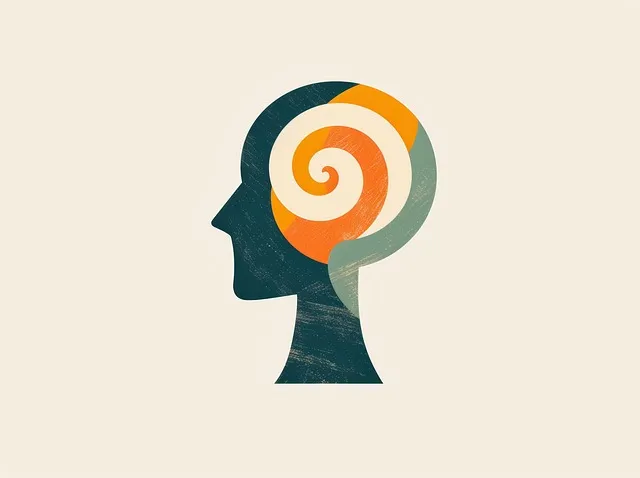Lone Tree Kaiser Permanente's behavioral health providers prioritize cultural sensitivity in mental wellness care, offering tailored support and personalized therapy to patients from diverse backgrounds. Through empathy, positive thinking, and learning traditional healing practices, they create safe, inclusive environments that build trust and promote open dialogue. Their approach enhances patient outcomes, empowering individuals on their paths to mental wellness while navigating cultural differences effectively.
Cultural sensitivity is a cornerstone of effective mental healthcare, and at Lone Tree Kaiser Permanente, we recognize its profound impact. This article explores the essential role of behavioral health providers in fostering cultural competence within our organization. We delve into navigating diverse cultural backgrounds, presenting challenges and opportunities alike. Furthermore, we offer practical strategies for culturally sensitive practice tailored for Lone Tree Kaiser Permanente staff. By measuring success through evaluation, we aim to enhance care delivery for all patients, ensuring inclusive and compassionate mental healthcare services.
- Understanding Cultural Sensitivity: A Foundation for Effective Care at Lone Tree Kaiser Permanente
- The Role of Behavioral Health Providers in Fostering Cultural Competence
- Navigating Diverse Cultural Backgrounds: Challenges and Opportunities
- Strategies for Culturally Sensitive Practice: Tools for Lone Tree Kaiser Permanente Staff
- Measuring Success: Evaluating the Impact of Cultural Sensitivity in Mental Healthcare
Understanding Cultural Sensitivity: A Foundation for Effective Care at Lone Tree Kaiser Permanente

At Lone Tree Kaiser Permanente, understanding cultural sensitivity is not just a concept; it’s a cornerstone for delivering effective behavioral health services. Our dedicated team of mental wellness coaches and therapists are trained to recognize and appreciate the diverse cultural backgrounds of our patients, ensuring that care is tailored to meet their unique needs. This approach fosters trust and strengthens the emotional healing processes, which are essential for long-term well-being.
By integrating cultural sensitivity into our practice, Lone Tree Kaiser Permanente behavioral health providers aim to resolve any potential conflicts arising from cultural differences, providing a safe space for open dialogue and understanding. Moreover, this commitment extends beyond treatment; it also involves the development of mental wellness coaching programs that resonate with various communities. Through these initiatives, we strive to empower individuals on their journeys towards mental wellness, regardless of their cultural origin.
The Role of Behavioral Health Providers in Fostering Cultural Competence

Lone Tree Kaiser Permanente behavioral health providers play a pivotal role in fostering cultural competence within the mental healthcare landscape. They are at the forefront of creating inclusive environments that cater to diverse patient populations, ensuring that care is tailored to individual needs and cultural backgrounds. These providers recognize that understanding a patient’s unique cultural context goes beyond basic knowledge; it involves actively incorporating cultural sensitivity into every aspect of treatment.
Through Mental Wellness Coaching Programs Development, these professionals can implement strategies such as Empathy Building Strategies to strengthen the therapeutic bond between caregiver and patient. By fostering an atmosphere of acceptance and understanding, they not only boost confidence but also create a safe space for vulnerable individuals to explore their mental health concerns openly. The goal is to empower patients, encouraging them to take charge of their mental wellness while embracing their cultural identity.
Navigating Diverse Cultural Backgrounds: Challenges and Opportunities

Navigating diverse cultural backgrounds presents both challenges and opportunities for mental healthcare practitioners, especially at organizations like Lone Tree Kaiser Permanente behavioral health providers. Understanding and respecting cultural differences in beliefs, values, and communication styles are crucial for establishing trust and delivering effective care. For instance, certain communities may prioritize collective decision-making or have unique self-care practices that need to be acknowledged and integrated into treatment plans.
This cultural sensitivity requires Lone Tree Kaiser Permanente behavioral health providers to adapt their approach, offering tailored support and resources such as stress management workshops designed with a diverse audience in mind. By embracing these differences, the organization not only enhances patient outcomes but also fosters an inclusive environment that encourages open dialogue about emotional regulation and overall well-being.
Strategies for Culturally Sensitive Practice: Tools for Lone Tree Kaiser Permanente Staff

Lone Tree Kaiser Permanente behavioral health providers can enhance their practice’s cultural sensitivity through diverse strategies. One key tool is empathizing with patients, understanding their perspectives shaped by unique cultural backgrounds and experiences. This involves actively listening to patients’ stories, validating their emotions, and refraining from making assumptions based on stereotypes or biases. For instance, recognizing that certain cultures may prioritize collective over individual expressions of distress can guide providers in adjusting their communication approaches.
Furthermore, incorporating positive thinking and emotional well-being promotion techniques tailored to diverse populations can be transformative. This might include learning about traditional healing practices, integrating mindfulness activities that resonate with various cultural backgrounds, or adapting relaxation techniques for those who may find certain methods more accessible or culturally relevant. By doing so, Lone Tree Kaiser Permanente staff not only improve patient satisfaction but also contribute to anxiety relief by fostering a sense of safety and understanding within the therapeutic environment.
Measuring Success: Evaluating the Impact of Cultural Sensitivity in Mental Healthcare

Measuring success in mental healthcare goes beyond clinical outcomes. It’s about evaluating how well healthcare providers create safe and supportive spaces for individuals from diverse cultural backgrounds. At Lone Tree Kaiser Permanente, behavioral health providers are not only equipped with evidence-based practices but also trained in compassion cultivation and empathy building strategies. This holistic approach ensures that every patient feels heard, understood, and respected, fostering a deeper connection and enhancing their mental wellness journey.
Through regular self-reflection and patient feedback, healthcare professionals can gauge the impact of their cultural sensitivity efforts. The Mental Wellness Journaling Exercise Guidance provided by Lone Tree Kaiser Permanente encourages both providers and patients to document experiences, fostering open dialogue and identifying areas for improvement. This continuous evaluation process allows for refinement of practices, ultimately enhancing the quality of care delivered to a diverse range of patients.
Cultural sensitivity is not just a best practice, but an essential tool for providing effective mental healthcare at Lone Tree Kaiser Permanente. By understanding diverse cultural backgrounds, fostering cultural competence among behavioral health providers, and implementing specific strategies, the organization can create an inclusive environment that meets the unique needs of its patients. Measuring success through evaluation ensures continuous improvement, ultimately enhancing patient outcomes and satisfaction within the context of Lone Tree Kaiser Permanente.






